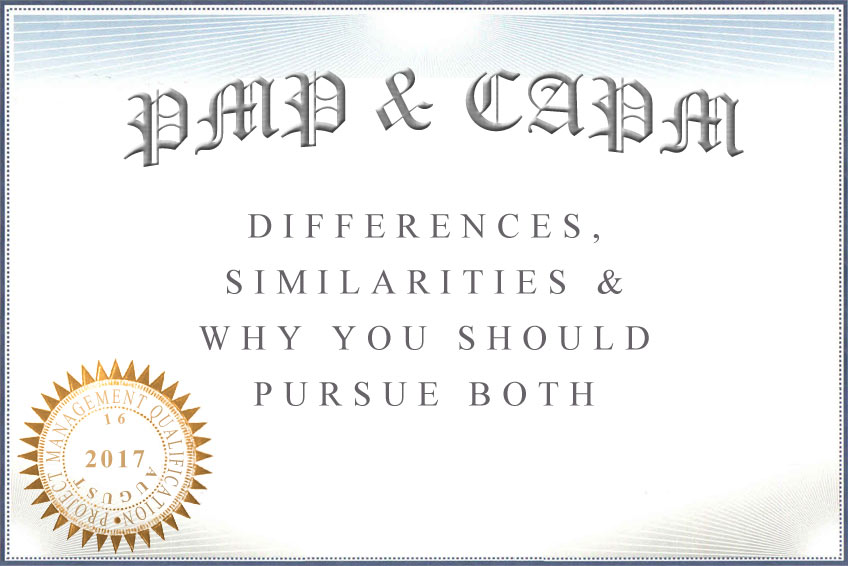PMP certification is in high demand. In 2011, PMP certificate holders earned ‘an average of 16 percent more than their peers.’ This information comes from the 2013 PMI’s Industry Growth Forecast: Project Management Between 2010 + 2020. However, it has certain requirements regarding education and relevant work experience.
For those who may not fulfil this criteria, there is a range of options. One in particular is the Certified Associate in Project Management (CAPM) certificate. This blog will directly compare PMP and CAPM, helping you decide which one may be the best for you.
PMP & CAPM Statistics
To begin, here are some quick facts and statistics about CAPM and PMP:
| Certificate | Project Management Professional (PMP) | Certified Associate in Project Management (CAPM) |
| Certificate Holders (Jul 2015) | 665,651 | 29,038 |
| Eligibility Requirements (via PMI.org) |
OR |
OR
|
| Average Annual Salary in the U.S. (via Infosec Institute) | $105,000 | $101,103 |
Why PMP & CAPM Have Different Entry-Levels
The respective entry requirements for PMP and CAPM show the necessary experience levels. PMP certification is for experienced project managers. These managers either want to advance their career, or maintain industry best practice. CAPM however, is for project team members who wish to take on further responsibility. It also targets recent college graduates interested in a project management career.
PMP & CAPM Exam Differences
This distinction can be seen in how candidates are assessed. The Project Management Body of Knowledge forms the basis of both exams. The difference between the two is one of theoretical understanding versus practical knowledge. CAPM tests knowledge of processes, as well as tools such as the Work Breakdown Structure (WBS). In comparison, PMP focuses on how to navigate a project from kick-off to completion. This includes conducting meetings, managing stakeholders and assessing risk. Detailed exam outlines for both CAPM and PMP can be found on the PMI website.
Why Pursue Both Qualifications?
Hopefully this blog has outlined the main differences between CAPM and PMP. However, you may be wondering whether there is benefit in attaining both certifications. CAPM is a sound introduction to project management best practice, with the help of PMBOK. As such, it can be a good starting point from which to work towards PMP certification. This clear learning trajectory can only help you find work in the industry. But, the CAPM certificate does not count towards PMP’s formal education requirements.
We provide accredited learning solutions for PMP and CAPM candidates. Our specially developed e-learning means you can shape your course of study, with the help of multimedia and interactive learning materials. To learn more about our PMP online course, click here. To learn more about our CAPM online course, click here.


